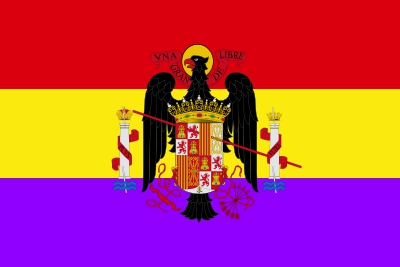Spanish right wing is lukewarm, which is one of its bigger problems; and I believe that our several political forces would be rather more balanced and coexist in more equal conditions would the not-secessionist right learn a couple important virtues now monopolized by the lefties and separatists; that is: the sense of moral and historical legitimacy, and the nonconformity (in the sense of moving away from gentry).
The rights in Spain are too burgeaois, too passive, besides having a strong distaste for the street, maybe because they believe that to protest or demostrate don’t suit the dignity that–they feel–corresponds to their category; or maybe because–and this is even worse–in the bottom of themselves they feel ashamed of their own ideology.
Certainly, Spanish right parties suffer from some weakness of temperament and even some ideological fragility, which makes them yield way too easily to the cunning slogans put forward by the left wing and the secessionists’ self-victimization. Such chronic ailments, along with their apparently unsurmountable fear of being called close-minded, denote a worrisome authoritarianism complex. But if they’re afraid of this, I wonder: how can they sadden to be branded as nazis or fascists? And I reply: doesn’t it mean that they feel discredited themselves in their political views? This is a severe and distressing problem, mostly taking into account that, in Spain, if you have never been called fascist or intolerant, then you’ve never had an idea of your own.

Antinomy flag
And if it’s not a complex, then I can’t understand why the Spanish righties gave up so readily and so soon to the word Spain and its derivatives. Our democracy was quite young when the right wing “disowned” (as Saint Peter did with Jesus) that word Spain and, instead, adopted and enshrined the locution this country. Not much later, following the anti-Spanish half of Spain driven by resentment, backed by the utterly regrettable wording of our Constitution article nr. three and supported by an unauthorized and pathetic Royal Academy of Language, the rights betrayed the Spanish language and enthroned the Castilian, an anachronism and vagueness whose only reasong for being is that it satisfies the revanchism of that half of Spain descendents of those who were defeated in our civil war.
And this is why today, despite ruling a right wing party with absolute majority, yet the new Law for Education, presumedly recapturing patriotic ideas of unity, in spite of recovering the good old Spanish language, sanctions the innocuous Castilian language, negating any patriotic notion. Pityful right complexes! It’s quite understandable that our lefties, successors of the republicans and masters of manipulation and propaganda, line up along with secessionists (Basque country, Catalonia) and abjure of words liable to be identified, if properly biased, with Franco’s dictatorship. But if our rights give in to such ploys, which power have they to “build nation” and defend the unity of a Spain whose name don’t utter for forty years?
SEMANTIC NOTE: Galician, Catalonian and Basque are not solely Spanish languages, because they’re also spoken in neighbouring countries, like France or Portugal. But even if they were, they’re not the Spanish language. Same goes for Castilian, supposing someone knows exactly what that be. Only Spanish is the language of Spain. This debate, so often brought up, turns out to be a simple question of being able to tell between adjectives and nouns, definite and undefinite articles, and to know the algebra of sets. Anything else is tomfoolery, hot air and politics.[:]
